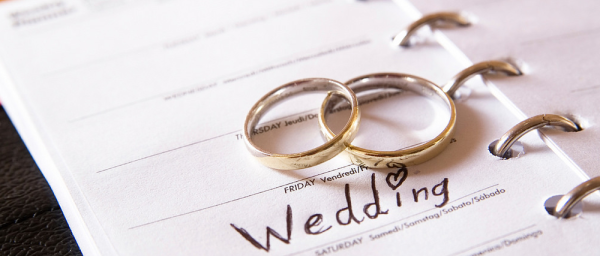There are hundreds of tiny details to plan for when it comes to your wedding, and some couples just don’t have the time to consider all of them. In this case, you may think about hiring a wedding planner. Depending on your budget and specific needs, there are multiple types of wedding planners that you can hire to guarantee smooth sailing on your special day.
On-Site Planners
Some wedding venues, depending on where you’re holding the ceremony, will provide on-site coordinators. Their services are usually included in price of the venue, and can allow the reception and ceremony to go on without problems. If your concerns are mainly with the wedding day itself and for the proceedings to go smoothly, a planner on-site is your best bet, and can be helpful to your budget.
Consultations, Partial Planning or Full-Time Wedding Planning?
However, many couples are mostly concerned with the planning that leads up to the wedding- food, venues, guests, etc. Putting these responsibilities in the hands of an independent planner can be very helpful, and finding a planner that will work with you every step of the way is crucial.
Some planners only sell consultations, and if you don’t have the budget for a full planner, this can be a good way to receive advice on your wedding. Others offer partial planning, in which they work with you shortly before the wedding, with a few weeks worth of consultations. And the remaining independent planners offer full-time services- from the first day of planning to the wedding day itself.
These types of planners can be expensive, but if your budget allows for it, they can be a blessing to those with little time or experience. A common rule couples follow is that you should spend around 10-20% of your budget on a planner. This can vary depending on your time and ability to plan certain aspects of the wedding, as well as any other areas you want to focus the budget on.
Schedules, Vender Connections, Food Tastings and More
Planners that are hired for shorter periods of time can help with scheduling a timeline for the wedding, so that the ceremony and reception go smoothly without conflict. They also can recommend vendors and connections they may have to services for the wedding. In some cases these vendors are more affordable, but not always.
Full-time planners can assist with these services, as well as many more involved activities. They can schedule and make recommendations for food tasting, floral arrangements, fittings, and etc.
They also tend to have a broader range of connections with vendors and companies to find your perfect photographer, caterer, and venue. Before selecting a planner, its important to know what services you’ll require of them, and what you need the most help in planning.
You may find that you prefer to plan most of the details yourselves, and only hire a planner to sort out the wedding rehearsal and ceremony. Or, you may discover you have a lot more questions than you initially assumed, and need to bring on a full-time planner.Regardless of what you choose, once you’ve planned your wedding down to the last detail, you will have wonderful memories of that special day for years to come.
Samantha Howard has coordinated several wedding occasions for many couples in the past. And enjoys seeing the happiness shine through thier expressions on their big day. Through some of her consultations, she has adviced couples to do their own leg work of research first before deciding what they are getting into- depending on thier budget and time.
Sometimes a part-time wedding planner or on-site wedding planner works for most, and sometimes it doesn’t and require full-time planners. Samantha knows that each wedding and couple is unique and special.

